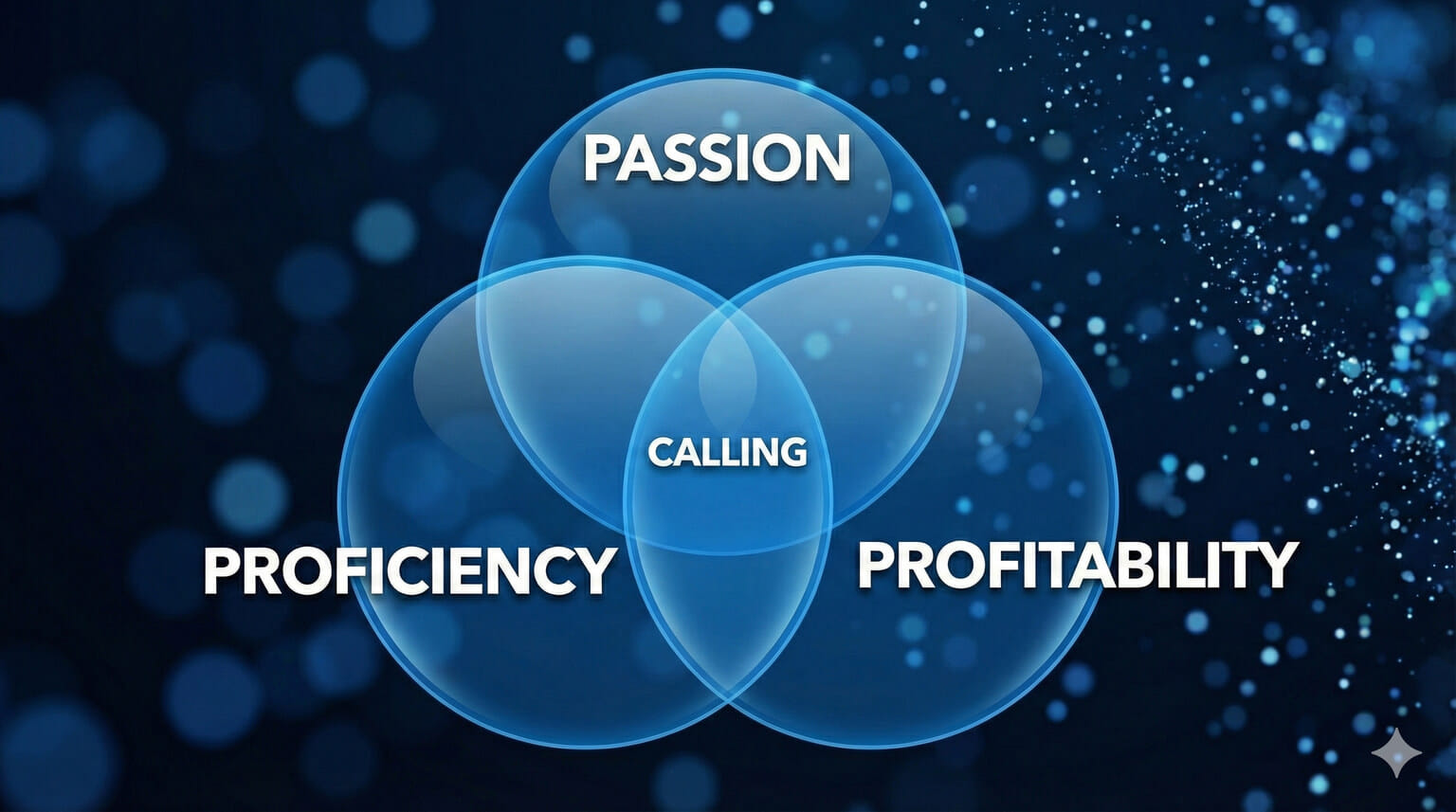There’s a saying out there that goes “Give me poverty and the family as strong as iron and in one generation in America my family will be poor no longer.”
This was the experience of millions of immigrants who came to the United States with nothing in their pockets yet with firm loyalty to family.
When an opportunity came to one member of the family, that family member brought up other family members with them. They looked after one another.
And while this is still true, a similar concept could be applied to our Network and Networking.
People have successful careers largely because of the network they’ve built up over their working years.
When their job unexpectedly ends, they have people to reach out to to help them find another role.
OR they have a consistent inflow of job leads for new positions by people in their Network that know them and their skillset and work ethic.
Zoom in to 2025 and this concept of your network is more important than ever. Regardless if you’re a self-taught developer, have a degree, or are 25 or 52, it’s a tough economy right now. The pool of talent is large, and they have more talent than you and me. And here we are learning to code or trying to change careers or move into a senior role or a principal role, all by ourselves, in our rooms isolated, ready to emerge only when we have achieved the proper skillset, as if that metric is even measureable.
But with these 5 principles of Networking that I’m going to share with you in this post, you’ll be able to develop this habit that will KEEP doors open for you and help you overcome the fear of being without a job or without opportunity in general.
So let’s look at these.
Watch the Video?
Before we get started, if you prefer video, here you go:
Otherwise, continue reading.
Principle 1: Shed Your Tendency to Isolation
Let’s face it, the stereotype of people who write software is one of introversion and subpar communication, but a super smart mind. They’re always nerds who are tapping away on their keyboards talking in a language no one understands. Of course, that’s not really the case, but I think it can be said that many developers just want to write code and be left alone. “Let the executives and managers go out to lunch, I’m going stay back with my turkey sandwich and study calculus and play pong in my terminal.”
Well, this changes today.
If you’re the type of person skipping lunch with the guys or girls or keeping your headphones on all day at work to drown everyone else out, listen to me. All those people you work with, each one of them have and will have a story. One will be promoted to an executive. Another will leave the company for some other more amazing company you wish you could work at. Another will leave to start his own business.
And, if you had taken your headphones off and attended the lunch hangouts, and got to know these people such that they exchanged their numbers with you when they left, AND they know that you are skilled and can do good work, you then have a very valuable contact in your network that you can reach out to when things go downhill.
In fact, do that with 10 people you currently work with and you then have 10 people in your network, 10 different options, and 10 different connections that can help you out when things go sour.
All because you decided today, and going forward, that you are going to intentionally interact with people on a regular basis, no matter how much it makes you feel uncomfortable.
Photo by Alex Haney on Unsplash
Principle 2: Make Networking a Lifestyle
Networking isn’t something you do at events only or when important people are around, IT’S A LIFESTYLE.
It should always be in the front of your mind as you go about your day. As you’re heading in the door or pulling up Zoom for that standup, get your mind together.
Who am I going to greet? How am I going to get out of my morning fog and talk a bit? Who haven’t I talked to recently, or who have I not introduced myself to?
You have to go out of your way each day to do this. And slowly, it will become a habit, a lifestyle (and, of course, a byproduct is that you’ll get better at communication).
Try to avoid the small talk. Be interested in other people. Try to learn from those discussions.
In addition, do good work. Be reliable and accountable to the tasks those people assign you. You want to form relationships and you also want those people to remember you for characteristics that make valuable connections.
Principle 3: Give More Than You Receive
Networking shouldn’t only benefit you. Having people in your network also means you are in their network. You can depend on them and they can depend on you.
They key here is to be that person that WANTS to see other people succeed. You don’t have any secret motives.
I’ve mentioned this book numerous times in the past but there’s a concept in there talking about people who are just about status. Playing this status game is a zero-sum game, you’re always fighting to move yourself up, and to do so you have to put other people down. But in networking, if you are building others up, they WILL pull you up with them.
It’s a POSITIVE SUM GAME.
When people are successful, we get envious or jealous and we want to criticize. But if you can develop this habit of celebrating with that person and actually being glad that they are succeeding, that person, and people, in time will want to pull you up with them. Again a positive-sum game, not a zero-sum game.
Photo by Neil Thomas on Unsplash
So remember, having people in YOUR network also means you are in THEIR network. Be the type of person people WANT to network with.
Principle 4: Break Out of Your Bubble
“Okay, so that guy is a lawyer or an architect or a manager or on the sales team. They aren’t really in my field. I talk programming and really only get along with my programming buddies. Thus, I only join them for lunch or talk to them at events.”
Well, this results in a small network. A limited network. What happens is that people who network well have connections in all different fields. Someone will mention that they are a sales manager and their company is about to start planning a new app and are looking to hire like 20 developers. And that other person thinks of you and says, “Oh well I know this one developer, he is really good, maybe he is looking for a change.” And next thing you know you have a potential job change that comes primarily from a sales manager. That happened because that other person who knows you was networking with a sales manager. You weren’t. You were hanging with your code buddies instead again playing pong in your terminal.
So when you go to events, don’t just huddle around those you know. Reach out to others in other fields. Ask what they do and try to understand their role. Be interested in them and what they do. Share what you do. Try to get a LinkedIn connection or a business card (wait are those still a thing?)
Principle 5: Nurture Your Network
Finally, now that you have built a network, you need to nurture it. What good is meeting people if they completely forget about you?
And you can do two things here.
First, you can reach out to them periodically with a lead like, “Hey I see that you are hiring senior developers. I have this one friend who is really talented and got laid off, can I send him your way?”
That not only helps your friend but also helps that connection with filling talent not from some void of resumes out there in the wild but from a friend’s recommendation. And in doing this, they will likely return the favor at some point.
Second, you need to reach out periodically to people in your network just to say hey, or to see if they want to meet for lunch, whether virtually or in person. This reminds the person of you and moves you to the forefront again of their mind and their network. I know people who aim to meet up with at least one person in their network per week, just over coffee or for lunch. No strings attached. Just a, “Hey, how is it going,” discussion.
But all in all, just a simple hello email or message will do. Again, no strings attached. Just a, “Hey, was just thinking of you, hope you’re well.”
But remember just because you’ve built a network doesn’t mean you come to mind when they think of their network. You have to nurture it.
So put a plan together there if you can.
Conclusion
Building connections is a crucial ability that can have a lasting effect, on your professional journey.
By embracing these five key principles—stepping out of solitude, weaving networking into your daily routine, prioritizing giving over receiving, expanding your social circle, and nurturing relationships—you can cultivate a robust network that benefits you over time.
What do you think? How’s your networking going? What are your tactics? Let’s discuss below.
This page may contain affiliate links. Please see my affiliate disclaimer for more info.






